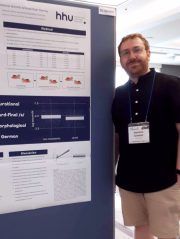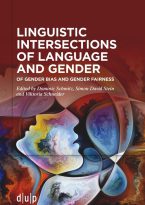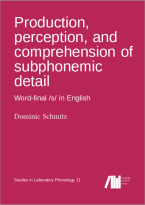I am a postdoctoral researcher at the English Language and Linguistics Department at Heinrich Heine University Düsseldorf, Germany. My work explores how linguistic structure emerges from experience, with particular focus on the semantics of gendered forms, the interaction of gender and language in general, discriminative learning and computational modelling, stress in English compounds, morphophonetic and phonetic detail, psycholinguistic aspects of comprehension and production, and sound symbolism. A more detailed discussion of these areas is available on my interests page.
My dissertation, published open access with Language Science Press, examined the production, perception, and comprehension of English word-final /s/ and has led to continued research on subphonemic cues in German and English. Earlier work addressed tonal alignment and compensatory vowel shortenings.
Further information can be found in my CV here. I also contribute to public debates on gender and language, including a 2020 statement by linguists on gender-fair language and a 2025 response to misconceptions in the Neue Zürcher Zeitung.

Dr. Dominic Schmitz (he/him)
Heinrich Heine University Düsseldorf
Faculty of Arts and Humanities
Department of English and American Studies
Anglistik III: English Language and Linguistics
Building 23.21, Floor 02, Room 96
Universitätsstraße 1
40225 Düsseldorf, Germany


